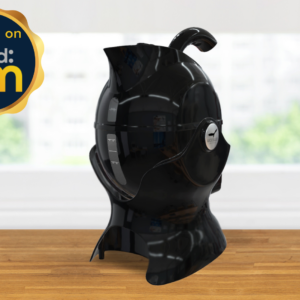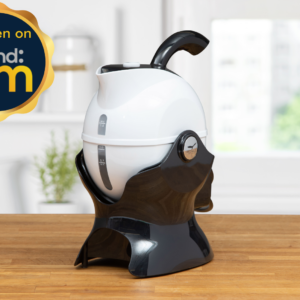In an world dominated by digital advertising and influencer campaigns, the age-old power of word-of-mouth (WOM) remains a crucial part of consumer decision-making—especially in Ireland’s close-knit communities. This is why it’s so important for retailers in the daily living aids sector, to understand and leverage this dynamic which can significantly impact sales and customer loyalty.
Trust in Personal Recommendations
Consumers place immense trust in the opinions of their family and friends. According to Nielsen, 92% of consumers trust recommendations from friends and family over any other form of advertising. This trust is particularly pronounced in sectors dealing with health and well-being, where personal experiences and assurances carry substantial weight.
For daily living aids, where product function and reliability directly affect a person’s independence and safety, recommendations from a trusted source become even more critical. Customers want reassurance, not just about the product itself but also about its ability to make real improvements in day-to-day life. When they hear it from someone they know or a store team member they trust, that message carries more meaning.
Word of Mouth Drives Sales
Word-of-mouth doesn’t just influence opinions—it drives action.
Studies show that WOM marketing is responsible for 20-50% of all purchasing decisions. Furthermore, consumers are four times more likely to buy a product when referred by a friend. In Ireland, where communities are more tightly knit and conversation flows easily in homes, cafes, and local shops, the impact of word-of-mouth cannot be overstated.
Products like the Uccello Kettle and Grip Mat tend to stand out in these conversations because they solve real, practical problems. When a customer experiences the benefit first-hand and shares that story with others, they become a powerful advocate for your store and product range.
Turning Customers Into Advocates
So, how can stores in the daily living aids space make the most of this powerful form of marketing? Here are some simple yet effective ways:
- Encourage Reviews and Testimonials: A simple ask in-store or a follow-up email can go a long way. Happy customers are often willing to share their experience—they just need to be asked.
- Train Staff to Spot Positive Moments: When a customer is clearly happy with a product, that’s an opportunity. Capture their feedback or ask if they’d be open to a testimonial.
- Use Signage to Spark Sharing: Consider small in-store signs that say, “Love your kettle? Tell a friend.” Subtle prompts can go a long way.
- Share Real Stories in Store and Online: Real people resonate! Share customer success stories via email, social media, or posters at point-of-sale to create emotional connections.
The Trust Factor in Local Retail
With more seniors shopping online and arriving in-store with higher expectations, it’s never been more important to understand what today’s customer really wants. In many cases, they’re already informed, already interested—they just need that final nudge of confidence to make a purchase.
That’s where word of mouth, reviews, and personal interaction shine. Trust and familiarity go a long way. Retailers that create a warm, helpful environment and highlight the real-life impact of their products will be the ones that win long-term customer loyalty.
While marketing strategies continue to evolve, the fundamental human tendency to seek and value peer opinions remains unchanged. By prioritising customer satisfaction and encouraging the sharing of positive experiences, retailers in the daily living aids sector can tap into the enduring power of word-of-mouth to drive growth, build relationships, and truly support their communities.
Let your customers do the talking—because nothing sells like trust.














Leave a Comment